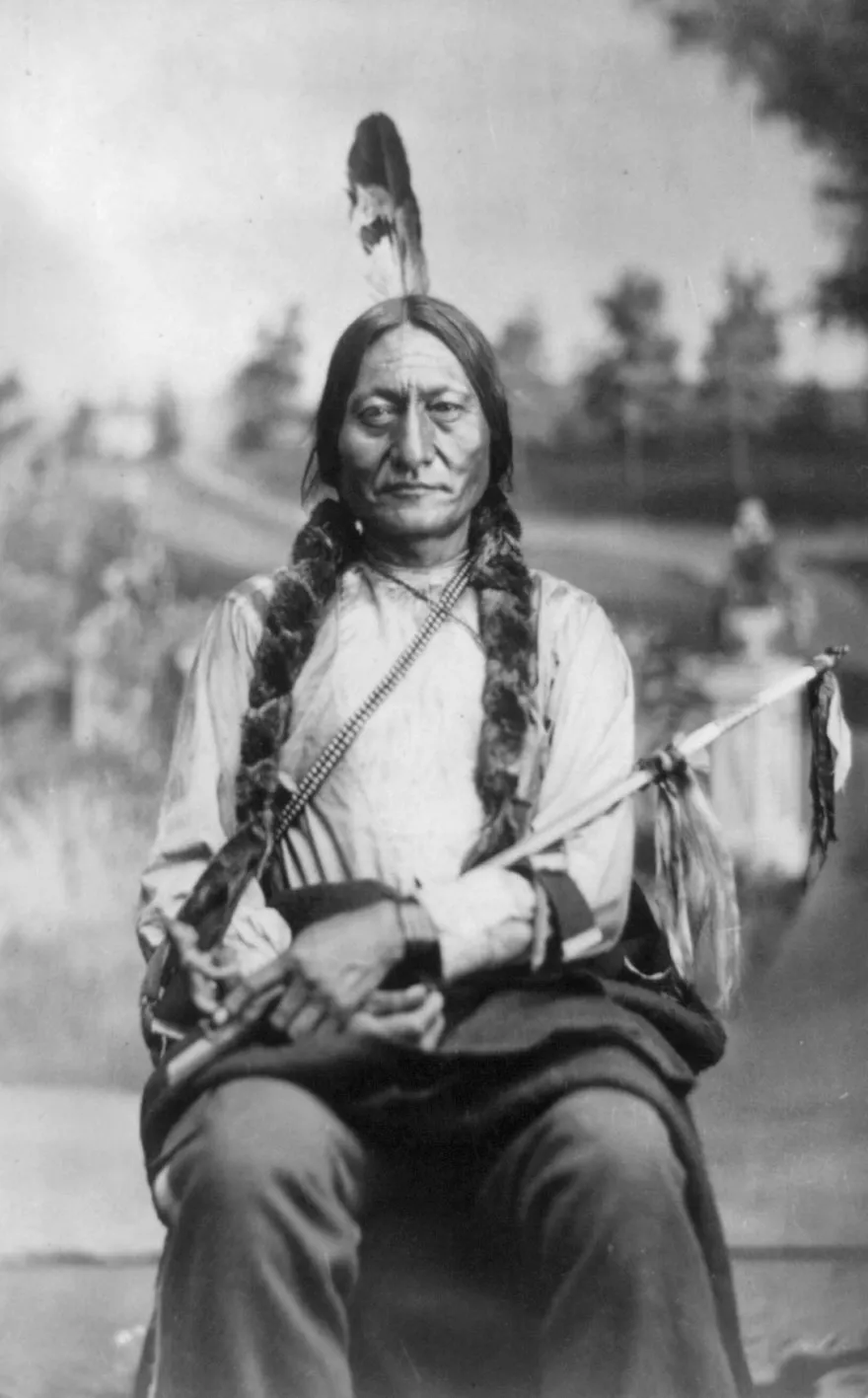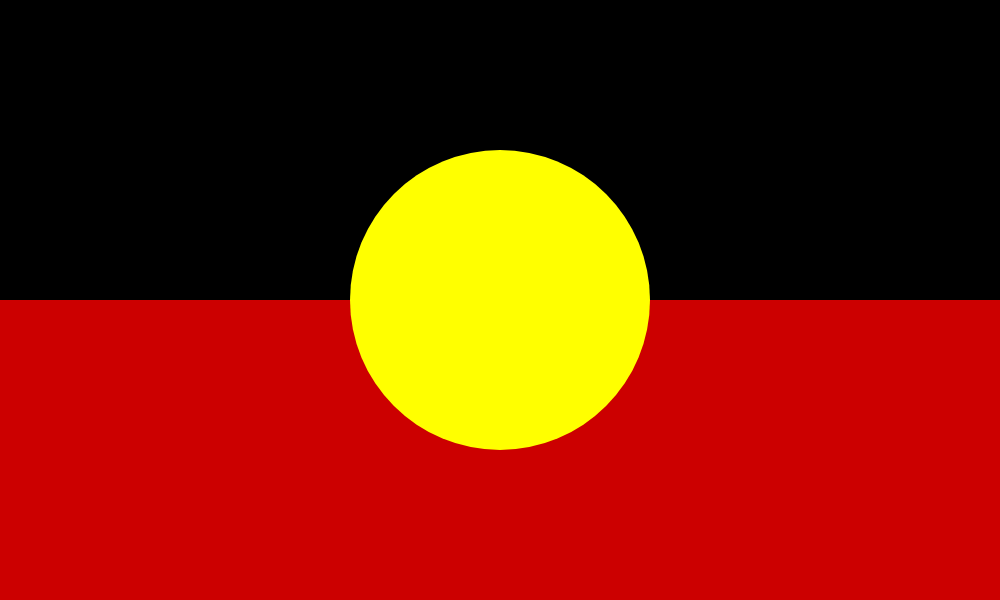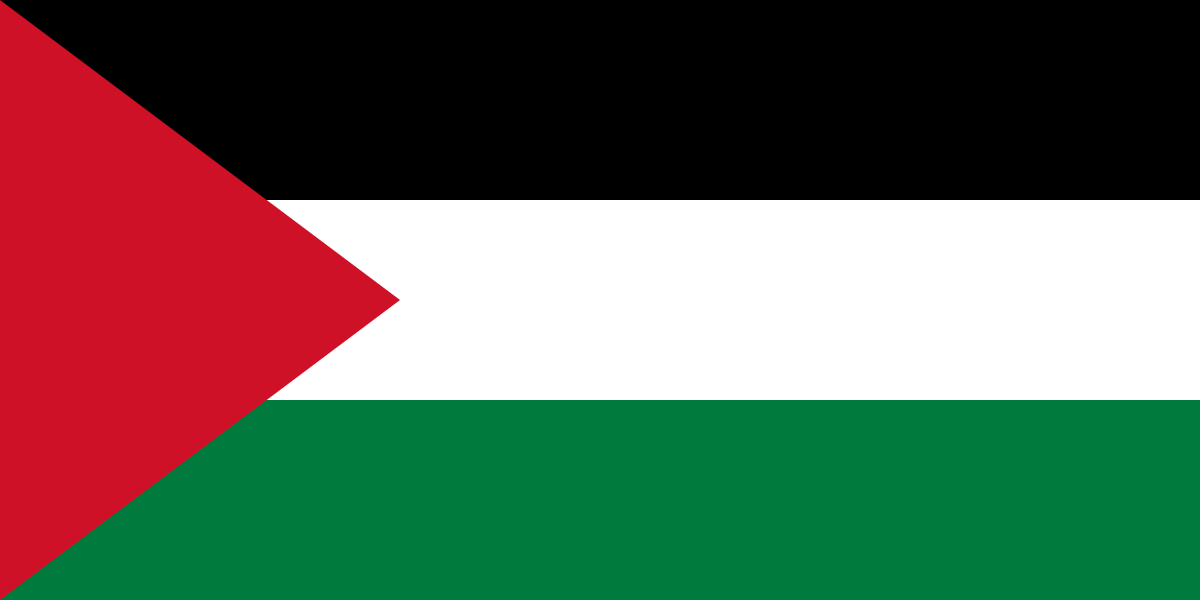(Tatanka Yotanka; in English, Sitting Bull; Grand River., 1834 - Fort Yates, id., 1890) Hunkpapa Lakota leader. As a young man he was part of the akicita (secret society) Brave Hearts, and gained fame for his deeds, which made him one of the most important Lakota leaders, strong defender of the ancient customs during the struggle of his people against American colonialism.
Sitting Bull formed cross-tribal alliances in his efforts to resist the process of colonization. Sitting Bull also steadfastly refused to become dependent on aid from the U.S. government.
On June 25th, 1876, Colonel Custer and his forces were wiped out at the battle of Little Big Horn. Sitting Bull did not take part in the battle, but acted as a kind of spiritual leader to those who did, performing the Sun Dance, in which he fasted and sacrificed over 100 pieces of flesh from his arms, a week prior.
In response, the U.S. government sent thousands more soldiers to the area, forcing many of the Lakota to surrender over the next year. Sitting Bull refused to surrender, and in May 1877, he led his band north to Wood Mountain, North-West Territories (now Saskatchewan). He remained there until 1881, when he and most of his band returned to U.S. territory and surrendered to U.S. forces.
In 1890, due to fears that Sitting Bull would use his influence to support the Ghost Dance movement (a movement of indigenous resistance), Indian Service agent James McLaughlin ordered his arrest. Early in the morning of December 15th, 39 police officers and four volunteers approached Sitting Bull's house. The camp awakened and men began to converge at the scene.
When Sitting Bull refused to comply, the police used force on him, enraging members of the village. Catch-the-Bear, a Lakota, shouldered his rifle and shot one of the Indian agents, who reacted by firing his revolver into the chest of Sitting Bull, killing him.
In 1953, his Lakota family exhumed what were believed to be his remains, reburying them near Mobridge, South Dakota, near his birthplace.
Megathreads and spaces to hang out:
- ❤️ Come listen to music and Watch movies with your fellow Hexbears nerd, in Cy.tube
- 💖 Come talk in the New Weekly Queer thread
- 💛 Read and talk about a current topics in the News Megathread
- 💚 Come and talk in the Daily Bloomer Thread
- ⭐️ September Movie Nominations ⭐️
reminders:
- 💚 You nerds can join specific comms to see posts about all sorts of topics
- 💙 Hexbear’s algorithm prioritizes comments over upbears
- 💜 Sorting by new you nerd
- 🌈 If you ever want to make your own megathread, you can reserve a spot here nerd
- 🐶 Join the unofficial Hexbear-adjacent Mastodon instance toots.matapacos.dog
Links To Resources (Aid and Theory):
Aid:
Theory:



My partner is from Venezuela and doesnt like Maduro, I can see why, but they also said that Venezuelans are also very classist.
Like even if Maduro and his party is extremely corrupt, corruption doesn't cause a failing government on it's own. Saudi Arabia and many Arab oil rich countries have a very similar economy to Venezuela and theyre doing fine, but theres no way you can say theyre not corrupt. So its not exactly corruption.
So the issue is possibly governance, we see that China and Vietnam are thriving. We can also see capitalist countries like Haiti and Congo failing or being hyperexploited. So its not exactly governance.
My problem is that when I talk to them about embargo and trade restrictions they dont under what they are and what they do. Your country is highly dependent on oil sales, yet your country has a rule imposed on the strongest and most rich country on it that says if you trade with Venezuela you cannot trade with US and its territories for 180 days. Absolutely no one is going to trade with Venezuela if you are missing out on the biggest economy on the planet in turn.
I think the problem that I had before was not realizing that Venezuela had right wingers before and after Chavez came into power and they still have them. They still spread their propaganda with the aid of the US and since Venezuela is already a discontent classist society, it works well.
If the embargos never took place Venezuela would have been easily to fund all of its social programs despite its corruption.